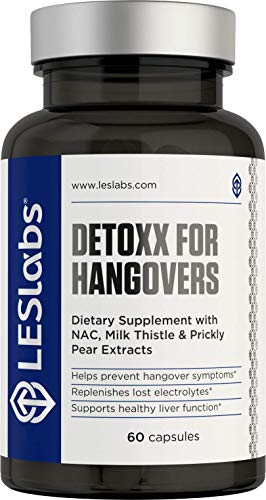At this time of year, even the most strong-willed of us can indulge in a tipple too many – only to regret it the next morning. So, what is the best way to avoid a hangover?
All alcoholic beverages are variations of the chemical ethanol and the liver and brain deal with it the same way, regardless of whether you’re quaffing Champagne or downing beer.
But your favourite drink may also include ingredients that not only make a difference to how fast alcohol affects you but also how you feel the morning after.
Here, with the help of a leading expert on alcohol toxicology, Professor Wayne Jones, of the University of Health Sciences in Linkping, Sweden, we look at the differences between popular alcoholic drinks – and their hangover effect.
Of course it is risky to drink any alcohol to excess – under official government guidelines, men are supposed to have no more than three to four units a day, women two to three units.
And be warned: ‘If you drink any type of alcohol on an empty stomach, the rate of absorption is sometimes so fast that it compares with getting it intravenously,’ says Professor Jones.
 The Hangover Handbook:...
Best Price: $1.95
Buy New $4.98
(as of 11:25 UTC - Details)
The Hangover Handbook:...
Best Price: $1.95
Buy New $4.98
(as of 11:25 UTC - Details)
Vodka
Vodkais made by fermenting grains or crops such as potatoes with yeast. It’s then purified and repeatedly filtered, often through charcoal, strange as it sounds, until it’s as clear as possible.
CALORIES: Because vodka contains no carbohydrates or sugars, it contains only calories from ethanol (around 7 calories per gram), making it the least-fattening alcoholic beverage. So a 35ml shot of vodka would contain about 72 calories.
PROS: Vodka is the ‘cleanest’ alcoholic beverage because it contains hardly any ‘congeners’ – impurities normally formed during fermentation. These play a big part in how bad your hangover is.
Despite its high alcohol content – around 40 per cent – vodka is the least likely alcoholic drink to leave you with a hangover, said a study by the British Medical Association.
CONS: Vodka is often a factor in binge drinking deaths because it is relatively tasteless when mixed with fruit juices or other drinks.
 LES Labs DeToxx for Ha...
Buy New $19.99
(as of 10:49 UTC - Details)
LES Labs DeToxx for Ha...
Buy New $19.99
(as of 10:49 UTC - Details)
HANGOVER SEVERITY: 3/10
WHISKY
Whisky or Scotch is distilled from fermented grains, such as barley or wheat, then aged in wooded casks.
CALORIES: About 80 calories per 35ml shot.
PROS: Single malt whiskies have been found to contain high levels of ellagic acid, according to Dr Jim Swan of the Royal Society of Chemists. This powerful acid inhibits the growth of tumours caused by certain carcinogens and kills cancer cells without damaging healthy cells.
CONS: Whisky ‘madness’ – erratic and unpredictable behaviour – is a common problem with drinking whisky. It’s caused by the way most people drink it – neat, explains Professor Jones.
His experiments show that among people drinking the same amount of ethanol, those drinking it in the form of spirits, such as whisky, had the quickest and highest peak in the blood alcohol concentration, which occurred less than an hour after drinking began.
 Hangover Cures
Best Price: $2.22
Buy New $4.99
(as of 05:50 UTC - Details)
Hangover Cures
Best Price: $2.22
Buy New $4.99
(as of 05:50 UTC - Details)
HANGOVER SEVERITY: 8/10
WHITE WINE
White wine is made from the fermented juice of grapes stripped of their seeds and skins.
CALORIES: Around 130 calories per 175 ml glass; slightly more in sweeter wines.
PROS: American researchers found that grape flesh contains the chemicals tyrosol and hydroxytyrosol, which help lower arteryclogging LDL cholesterol.
CONS: It’s the sulphites formed naturally or added to white wine as preservatives to stop it going brown which are the most likely cause of the ‘white wine hangover’ many people complain of.
Sulphites also carry the risk of an allergic reaction which can worsen symptoms such as a headache, or asthma. White wines also wear away tooth enamel faster, making teeth more sensitive.
HANGOVER SEVERITY: 6/10
December 16, 2009





